STEM-center
STEM-center
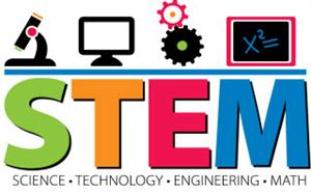 STEM-center purpose:
STEM-center purpose:
- formation of the scientific view of the world and critical thinking, formation of the creativity of the young individuals in terms of the establishment of information society and knowledge economy.
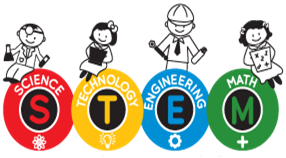 STEM-center tasks:
STEM-center tasks:
- learning motivation of students of research and technology field and further development of scientific careers;
- inspiration of research and innovations in STEM-fields;
- development of scientific human capacity of the country.
 STEM-center areas of focus:
STEM-center areas of focus:
- creation of a strategic partnership between the university, secondary schools and enterprises;
- carrying out the Days of Science at universities and other educational institutions;
- carrying out the university competitions in software and IT fields;
- employment of talented pupils through competitions, workshops, trainings and educational quests.
About us
STEM-education is often called “education in reverse”. The chain “from theory to practice” in STEM is usually reverse: the game, inventing and crafting of hardware devices go first, and then, in the process of these activities there is mastering of theoretics and new knowledge. However, of course, STEM-education – is not only about “education in reverse”. Abbreviation STEM stands for science, technology, engineering, mathematics – and the biggest asset of STEM-education is that it helps to learn sciences through the integration of all five disciplines into a single system of education.
FROM “SCIENCE WITHIN SELF” TO EDUCATION IN LIFE
Olha Barna, associate professor at the Department of Computer science and Teaching Techniques is confident that the future belongs to interdisciplinary integration. According to her, today children get fragmentary knowledge, which can be compared to a puzzle. Only few students can “fit” these puzzles together in a single “picture” of the world.
-Unfortunately, even if STEM-education is implemented at schools, it is done within individual subjects and rigid curricula – admits Olha Barna. – In addition, children receive knowledge from the teacher, from textbooks and on the Internet and rarely practice it by themselves.
Meanwhile in Europe, by contrast, most school subjects are practice-oriented. During the study of the topic “Interest”, students have to calculate, for example, how much interest you pay on a bank loan – practical task for school is imposed by life itself.
The teacher believes that the task of the university is to train (and quickly retrain) teachers who would be able to implement within the shortest possible time and who would help to organize STEM-education in a secondary school. Important is that each of the sciences of STEM system would be implemented in a complex, but not separately, as it often occurs today.
Field-specific classes are the best way to implement STEM-education in schools. In particular, the classes of mathematical specialty would do simple engineering calculations etc.
The method of subject integration is taken into account during writing textbooks. For example, a method of subject integration is mandatory when working on the textbook in “Computer Science”, one of the authors of which is Olha Barna.
We synchronize this subject with the others – says the teacher. – We analyze how students can “connect” a particular topic with biology, chemistry or physics. For this should not be a “science within self”, but education in life that could be used in other areas.
In Volodymyr Hnatiuk Ternopil National Pedagogical University STEM-directions are the priority. STEM-center operates there, and students can use laboratories and look for scientific and methodological support. Students create models of functional robots, acquire 3D printing, and conduct researches in chemical and biological laboratories. In addition, the master’s programs provide special integrated courses, the trainees work on joint projects. The community finances many projects. For example, as a part of the project “3D-castles of Ternopil” students model the buildings that need restoration. Soon, there will be the lawn of Ternopil castles, where these historical and architectural monuments will be located. Students, historians, physicists and fine art experts take part in this project. Experience of teamwork and “education in reverse” (when acquiring knowledge during the practical work on the project) will be useful for young teachers in their future careers.
-Subjects integration is under way – says Olha Barna. – If we add art to the system of STEM-education (the letter “A” – i.e. art), we will get not just the integration of technical subjects, but subjects built on creativity. For if a nation ceases to produce ideas, it becomes only a consumer.
Modern STEM-education: present and future
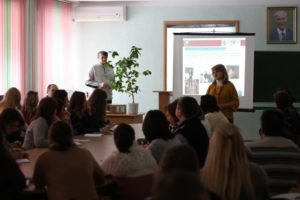 February 1, 2017 the Department of Computer science and Teaching Techniques of Volodymyr Hnatiuk Ternopil National Pedagogical University, Faculty of Physics and Mathematics held the meeting of more than 40 science teachers and physics from Chortkiv district. Thanks to the cooperation of the Department and teachers of the region and the initiative of Chortkiv Region Curriculum Office (Head S.Petriv, methodologist L. Kastranets) teachers had the opportunity to get acquainted with the work of STEM-center, including the 3Dprinting technology, programming of Lego robots, creating projects based on microcontroller Arduino. Teachers also participated in the training, which was developed by the International Training Centre “Educational Innovation” which operates under the Department. The course program provides acquisition of practical skills and theoretical foundations of computer simulation, which is very useful taking into account the modern requirements and will be discussed within a computer science course in grade 9 according to a new program. Such an event, according to its members, is a real example of teachers training aiming to implement the concept of a New School, of a new approach to the educational process. It is now important to prepare students for life, build competencies that will solve real practical needs of their country, community and family. Using robotics, creating and programming models that transform the lives of children into “intelligent life” in a “smart city or village” and the use of the Internet of Things – these are the factors that can integrate physics, chemistry, biology, mathematics, computer science and technical activities into comprehensive science of life in the digital world. It is important that Volodymyr Hnatiuk Ternopil National Pedagogical University has, along with the enormous scientific and technical potential and highly qualified scientists, a strong desire to share their knowledge and skills and change our society for the better.
February 1, 2017 the Department of Computer science and Teaching Techniques of Volodymyr Hnatiuk Ternopil National Pedagogical University, Faculty of Physics and Mathematics held the meeting of more than 40 science teachers and physics from Chortkiv district. Thanks to the cooperation of the Department and teachers of the region and the initiative of Chortkiv Region Curriculum Office (Head S.Petriv, methodologist L. Kastranets) teachers had the opportunity to get acquainted with the work of STEM-center, including the 3Dprinting technology, programming of Lego robots, creating projects based on microcontroller Arduino. Teachers also participated in the training, which was developed by the International Training Centre “Educational Innovation” which operates under the Department. The course program provides acquisition of practical skills and theoretical foundations of computer simulation, which is very useful taking into account the modern requirements and will be discussed within a computer science course in grade 9 according to a new program. Such an event, according to its members, is a real example of teachers training aiming to implement the concept of a New School, of a new approach to the educational process. It is now important to prepare students for life, build competencies that will solve real practical needs of their country, community and family. Using robotics, creating and programming models that transform the lives of children into “intelligent life” in a “smart city or village” and the use of the Internet of Things – these are the factors that can integrate physics, chemistry, biology, mathematics, computer science and technical activities into comprehensive science of life in the digital world. It is important that Volodymyr Hnatiuk Ternopil National Pedagogical University has, along with the enormous scientific and technical potential and highly qualified scientists, a strong desire to share their knowledge and skills and change our society for the better.
In the end of the event, head of the Department of Computer Science and Methods of Teaching Associate Professor Nadiia Balyk said that the team headed by her department invites to conduct such seminars for teachers in other districts and in Ternopil in order to transform the education of Ternopil. For in a year, we can transform it into STEM-oriented education and hold a regional festival of robotics and design that will trigger the establishment of new start-ups, workplaces and development of the potential of the region and the country. Chortkiv district set an example worthy of appreciation. Who is next?
Winter school of personal development “My Digital Holidays”
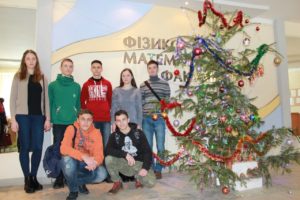
January 12, 2017 at the Faculty of Physics and Mathematics Winter School of personal development, “My Digital Holidays” for 11th grade graduates of the region and city schools was held.
This school aimed to form a digital potential of young people, promoting the personal development of students in terms of the competence-based education, improvement of mathematics education, preparation for testing in mathematics.
The event program was rich and interesting. In particular, students were able to create a project “Digital piano in 10 steps” using virtual laboratory Arduino, find out more about one of the technologies of success – technology of strategic planning “SWOT-analysis”, practice in solving complex problems in mathematics and prepare for participation in university Olympiad in mathematics.
Winter School participants were able to visit museum of the history of computing and laboratory of computer simulation and 3D printing of the “Digital erudites” STEM-center.
More than 70 participants of the Winter School received a boost for personal development, positive emotions and found new friends. This event opens a series of events planned in 2017 at the premises of STEM-center for teachers and pupils of the region and the city.
“Digital” vacations of schoolchildren of the area at the Faculty of Physics and Mathematics are over
“Innovative technologies in training of talented youth”
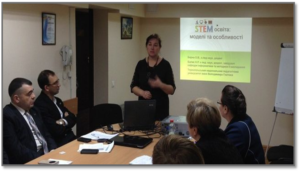 December 7, 2016, the Department of STEM-education of Institute for Modernization of Educational Content held All-Ukrainian research and practice seminar “STEM-education: ways of administration, current issues and perspectives” within the VII International scientific-practical conference “Innovative technologies in training of talented youth”. Associate Professor at the Department of Computer science and Teaching Techniques of Volodymyr Hnatiuk Ternopil National Pedagogical University Olha Barna presented a model of STEM-education and its special aspects, told in detail about resources, instructional approaches and structure of the functioning STEM-center based on the University.
December 7, 2016, the Department of STEM-education of Institute for Modernization of Educational Content held All-Ukrainian research and practice seminar “STEM-education: ways of administration, current issues and perspectives” within the VII International scientific-practical conference “Innovative technologies in training of talented youth”. Associate Professor at the Department of Computer science and Teaching Techniques of Volodymyr Hnatiuk Ternopil National Pedagogical University Olha Barna presented a model of STEM-education and its special aspects, told in detail about resources, instructional approaches and structure of the functioning STEM-center based on the University.
3D printer for the World Day of Science
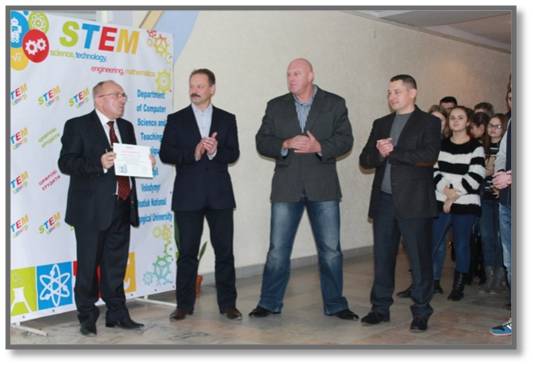
November 10, on the World Day of Science, deputies of the Verkhovna Rada of Ukraine (Ukrainian Parliament) Oleh Barna, Mykola Liushniak, Ihor Pober, Taras Yuryk visited Faculty of Physics and Mathematics with a notable gift. They presented a certificate for a modern 3D printer to students and teachers of the faculty. Parliamentarians wished young scientists to develop creative talents for the benefit of Ukraine, to realize the potential in the IT sphere as one of the most promising, not only on the territory of our region but also in Ukraine as a whole.
Within the walls of Pedagogical University the foundation of the modern school is laid, the idea of which will be implemented by our graduates. STEM-center functions on Faculty of Physics and Mathematics. Here effective IT projects are implemented and considerable work with talented students and pupils of the city and the region is carried out. Initiative to support young science and their innovative potential, in the unanimous opinion of those present at the final meeting of the staff of the Faculty of Physics and Mathematics on Science Days, will have a decent benefit in the near future and will contribute to the entire Ternopil community.
Gift of the members of the Parliament of Ukraine to the World Day of Science
Young Science Days
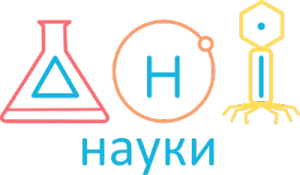
From 8 to 10 November 2016 Faculty of Physics and Mathematics of Volodymyr Hnatiuk Ternopil National Pedagogical University on the initiative of the Department of Computer science and Teaching Techniques within the World Science Days organized Young Science Days. The World Day of Science was recommended in 1999 during the World Scientific Conference (now – the World Science Forum) held in Budapest, to enhance public understanding of the benefits of science. The conference grounded the necessity for denser interaction between science and society. Following this conference in 1999, UNESCO officially established the World Science Day and proclaimed it on a general conference in 2001. On a global scale, World Science Day was commemorated in 2002 for the first time.
The program of Young Science Days on Faculty of Physics and Mathematics of TNPU
08.11.2016:
- Demonstration and defense of projects of students of I-23 on video editing, animation, 3D modeling “Creative Science 2016” (Halan V.I., Velhach A.V.);
- Research and practice seminar “Analysis of algorithms using modern information technology” with students of I-44 (Hrod I.M., Vasylenko Ya.P.).
09.11.2016:
- Defense of projects “Young science – to pupils” of students of M-52 (Barna O.V., Martyniuk S.V., Halan V.I.);
- Mini-training “Innovative tools for organizing activities in the field of tourism” as part of the International Training Center “Educational Innovation” for students of the Faculty of Geography (Barna O.V., Shmyher H.P., graduates of “Computer Science” specialty).
11.10.2016:
- Research and practice conference of young scientists “Innovative research in STEM-education field” (Balyk N.R., Barna O.V., Velhach A.V.).
Phys-Math holds Young Science Days
Europe Code Week for students of Ternopil and Ternopil region
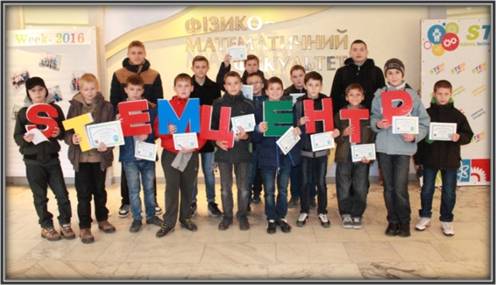
October 17, 2016 in STEM-center “Digital erudites” of Faculty of Physics and Mathematics in cooperation with the Department of Education and Science of Ternopil State Administration under the aegis of the EU Code Week Ambassadors in Ukraine the Europe Code Week began. The initiative of teachers of the Department of Computer science and Teaching Techniques and volunteers of STEM-center aims at promoting digital literacy of Ternopil citizens and attract pupils and students to work in modern computer labs, with robotic systems and usage of Volodymyr Hnatiuk Ternopil National Pedagogical University scientists’ intellectual assets.
Students and teachers of Faculty of Physics and Mathematics who have successfully passed the Hour of Code on a European platform were first who opened the events. October 18, pupils and teachers from 12 schools of Ternopil visited the Faculty. 88 students of 5-11 grades participated in the master class on programming, passed the Hour of Code, and attended workshops on designing and programming robots on Lego and Arduino platforms, found out about 3D printing technology. Formation of coding skills not only promotes the development of critical thinking skills and goal setting of youth, but also increases the digital skills to master future career in IT. These measures contribute to motivating students in science, engineering, programming, physics and mathematics. In addition, the students, despite the tense and full of different activities day, returned elated with success, understanding of where to go next, where to apply their knowledge and skills in real life, how to learn to be useful to their family and country. Some participants received prizes and certificates and everyone, what is most important, came up with many positive and interesting ideas. These events in the University will continue to the end of the week. According to the register, more than 300 participants from schools of Ternopil region are expected.
Volodymyr Hnatiuk Ternopil National Pedagogical University holds the Europe Code Week
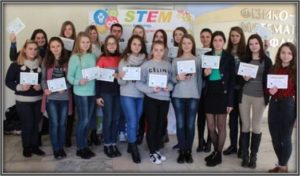
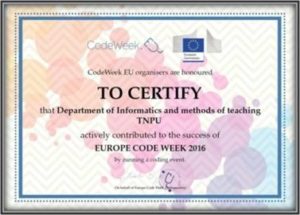
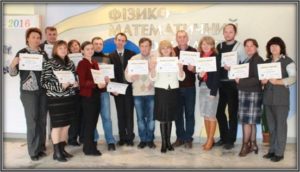
The key of success to digital future
In October 2016 in TNPU based on Faculty of Physics and Mathematics a scientific and educational event by STEM-center for Ternopil pupils was held. Students and teachers interested in science, IT technologies, robotics, software engineering and development of computer games were invited.
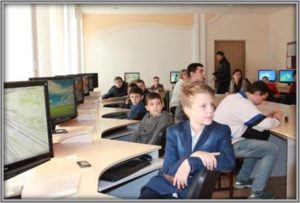
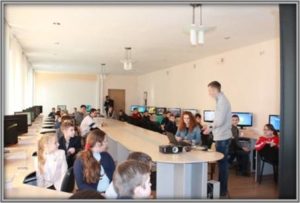
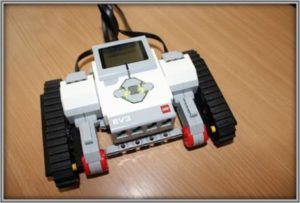
3D gift to the Ternopil city Foundation day
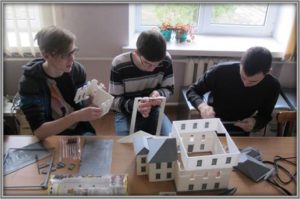
A joint innovative project of Faculty of Physics and Mathematics of Volodymyr Hnatiuk Ternopil National Pedagogical University (Department of Computer Science) and “The Third Element” studio of 3D printing (Roman Romanskyi and Roman Tytarchuk) was completed until the Ternopil city Foundation Day. April 15, 2016 Ternopil Castle as a gift got its miniature copy.
3D printing is the innovation that will open great opportunities in the tourism industry already in the near future. IV course “Computer Science” student Andrii Mandebura studied many archival documents and created 3D computer model of the Ternopil Castle. It took two weeks to print the castle by gradual layering of PLA and ABS plastic, about two kilograms of consumables were input in its production.
The advantage of 3D printing is that it allows you to create a variety of models and prototypes to see how the design will look like in real life. It is planned to develop a collection of 3D castles of Ternopil with the aim of promoting cultural potential of our region.
Lecture and workshop of experts from IT companies ELEKS
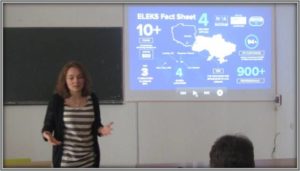 February 26, 2016 Department of Computer Science and Teaching Techniques of Volodymyr Hnatiuk Ternopil National University organized a meeting of the ELEKS IT company specialists with the students of Faculty of Physics and Mathematics. Leading specialists told about the current trends in the IT industry and held a master class in robotics.
February 26, 2016 Department of Computer Science and Teaching Techniques of Volodymyr Hnatiuk Ternopil National University organized a meeting of the ELEKS IT company specialists with the students of Faculty of Physics and Mathematics. Leading specialists told about the current trends in the IT industry and held a master class in robotics.



 Українська
Українська